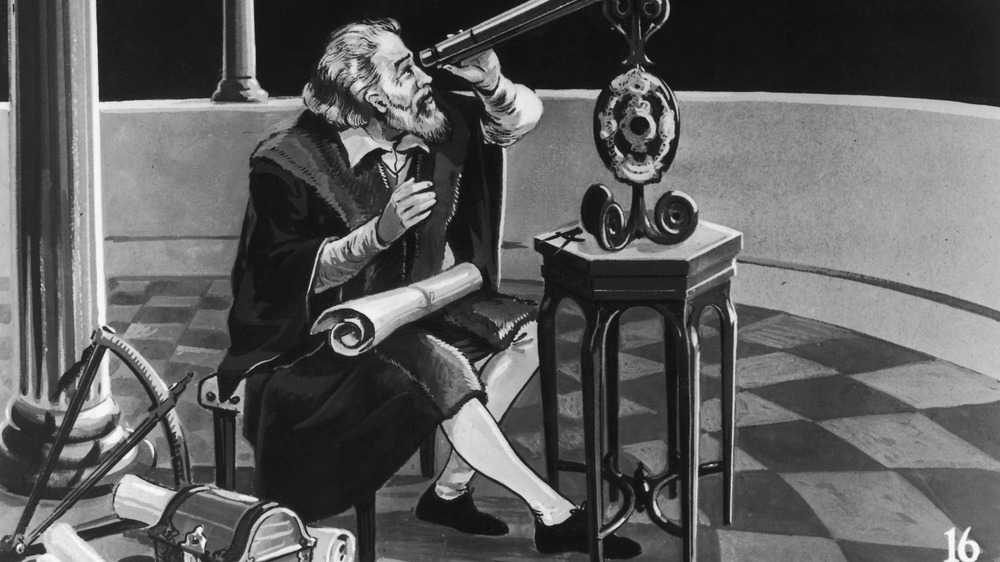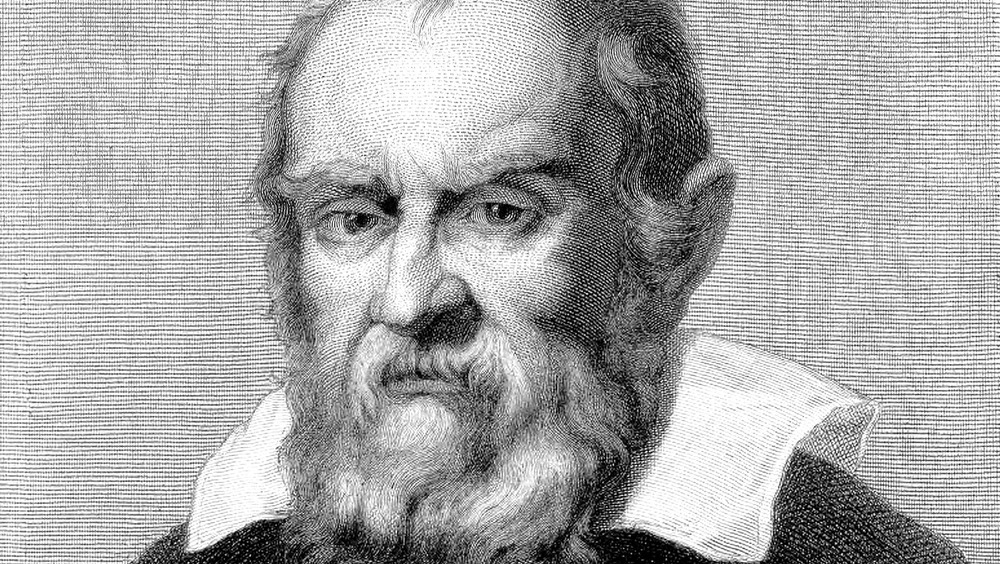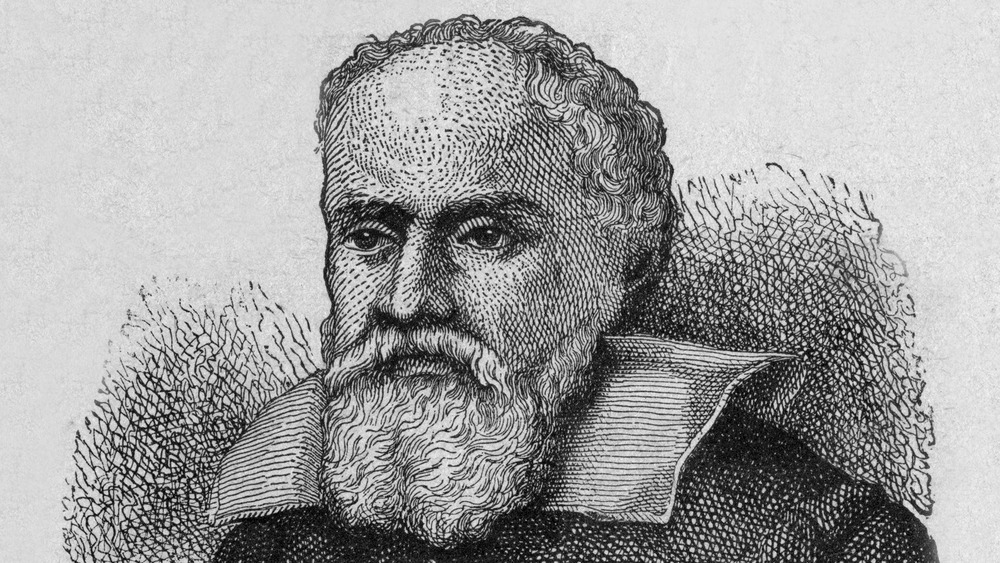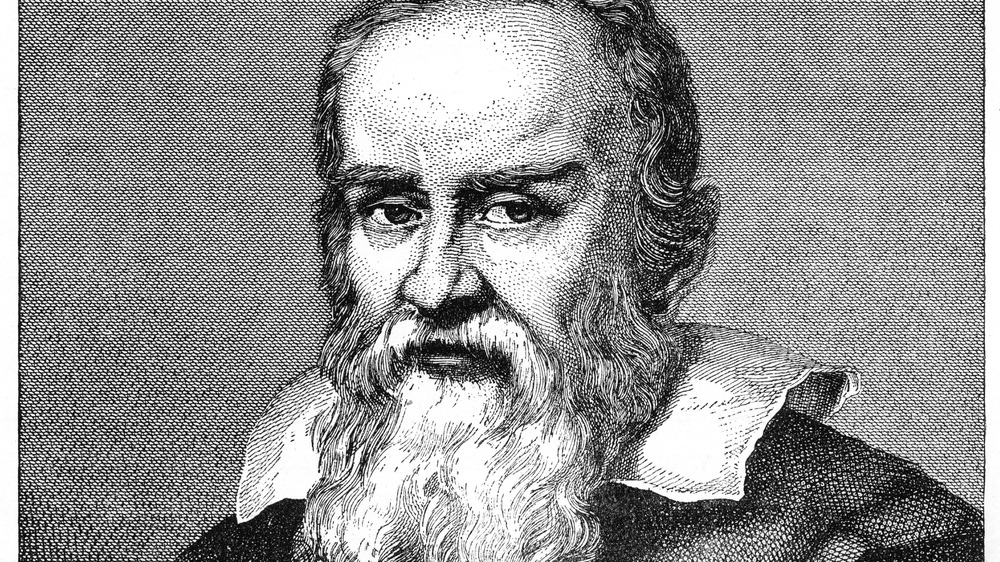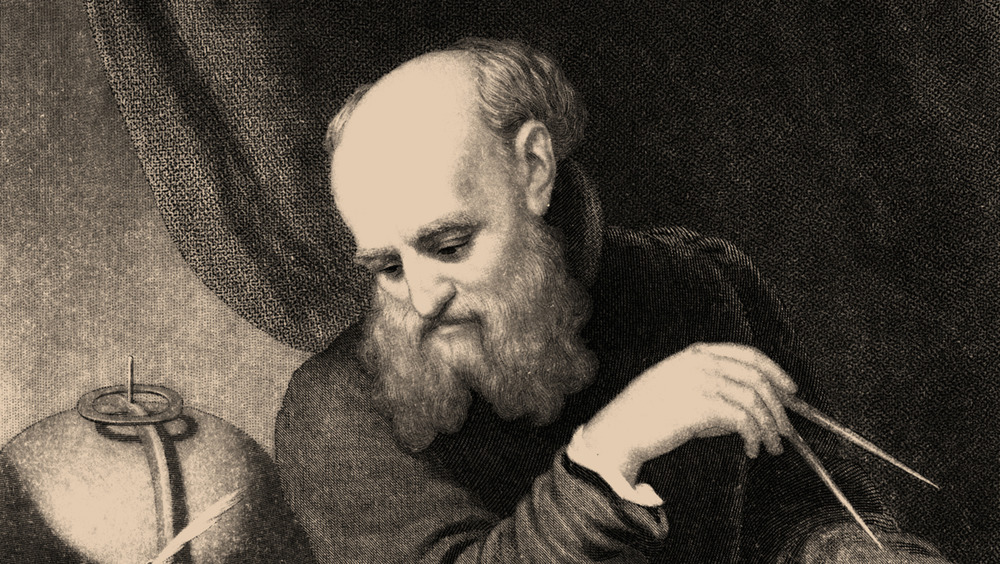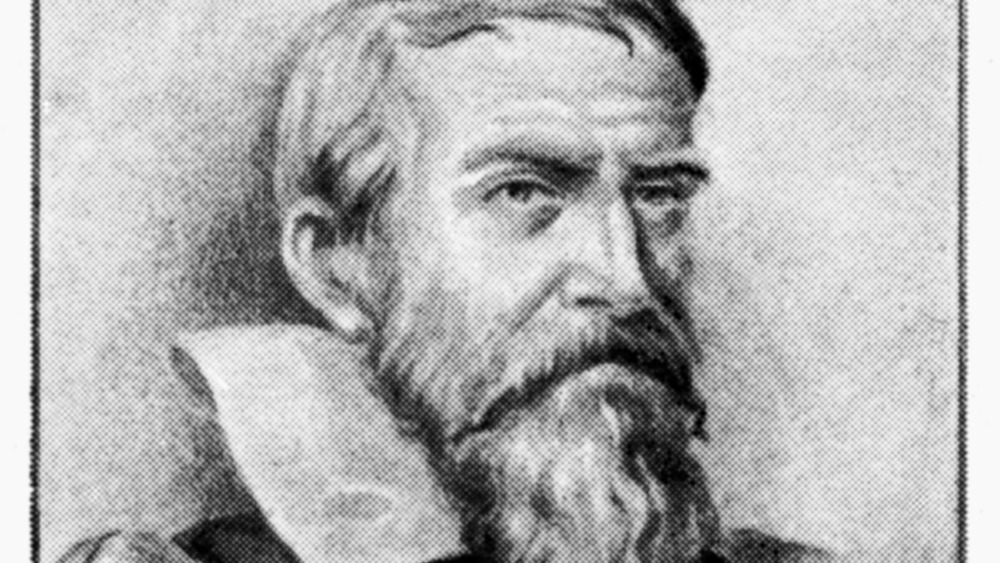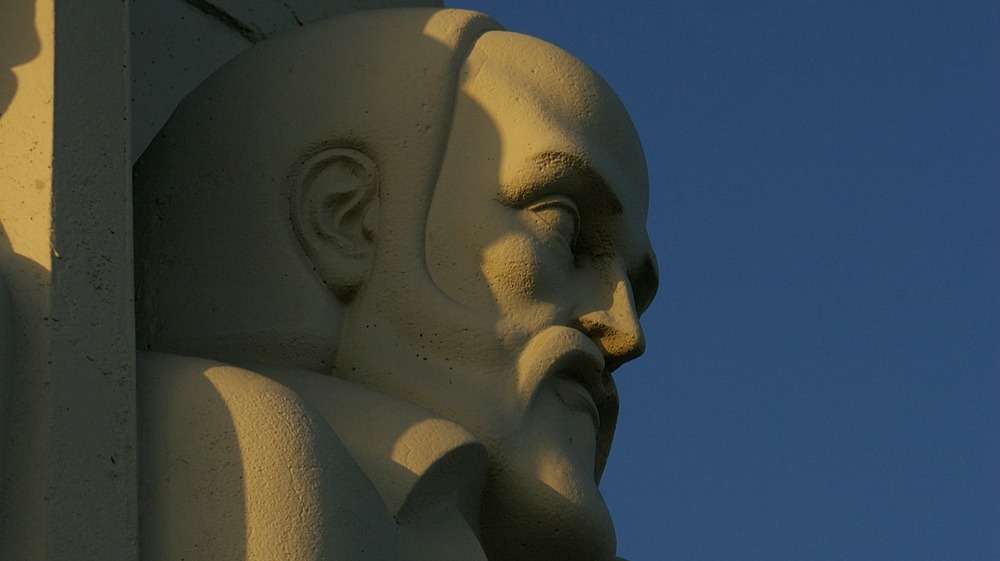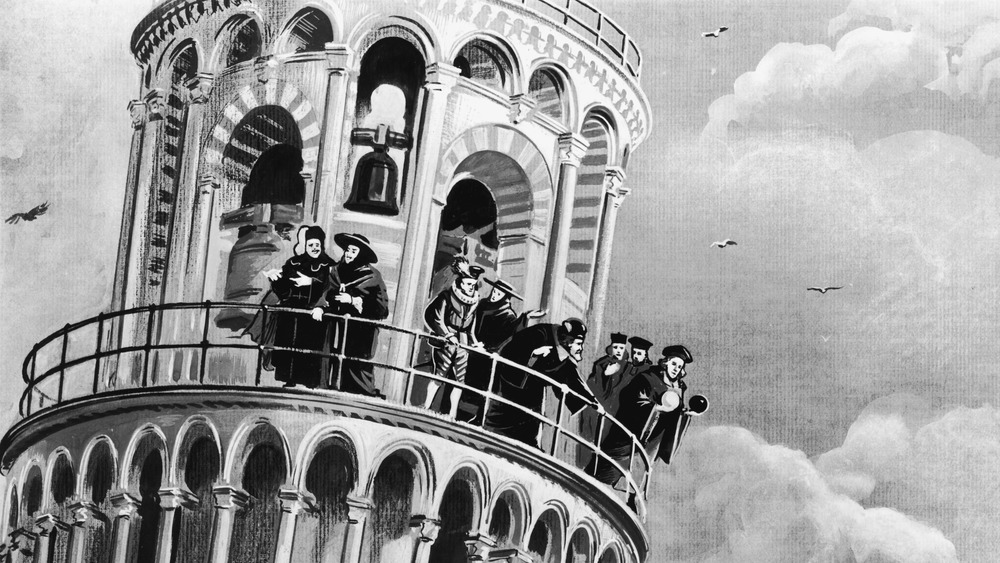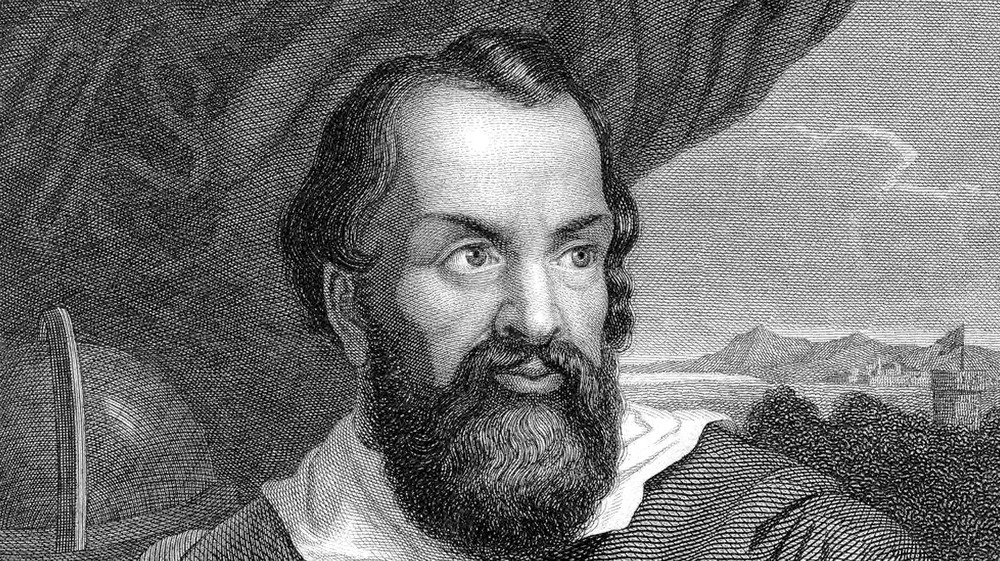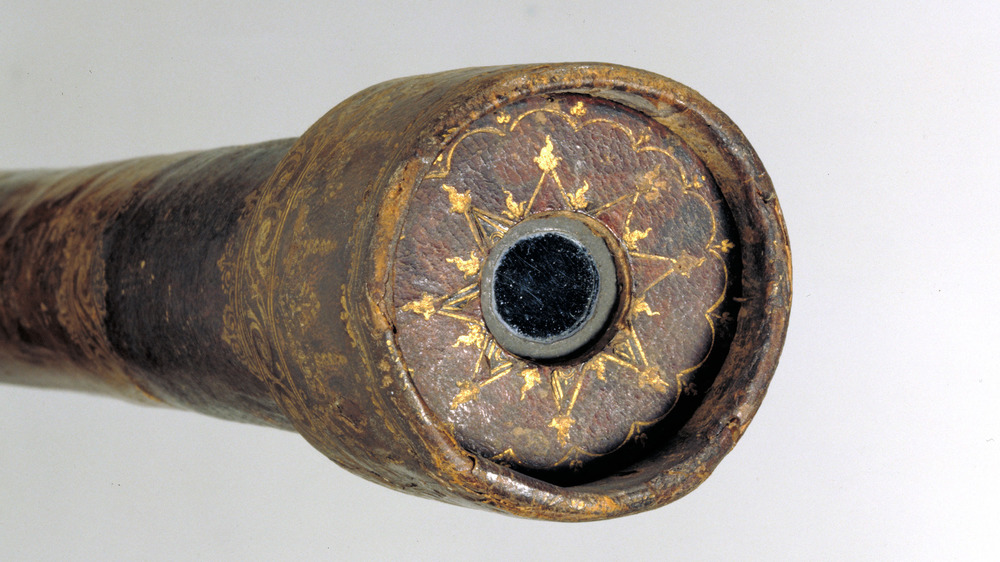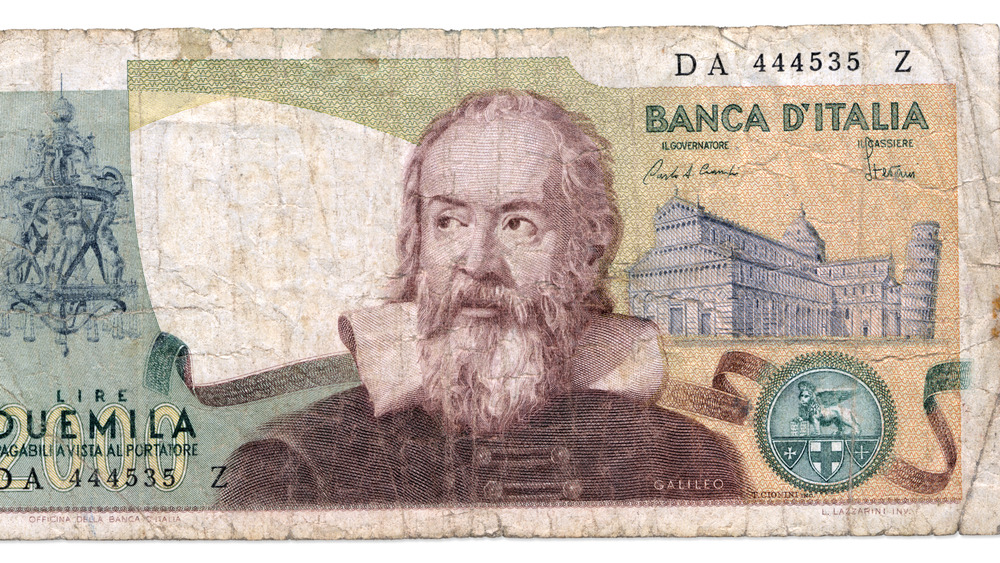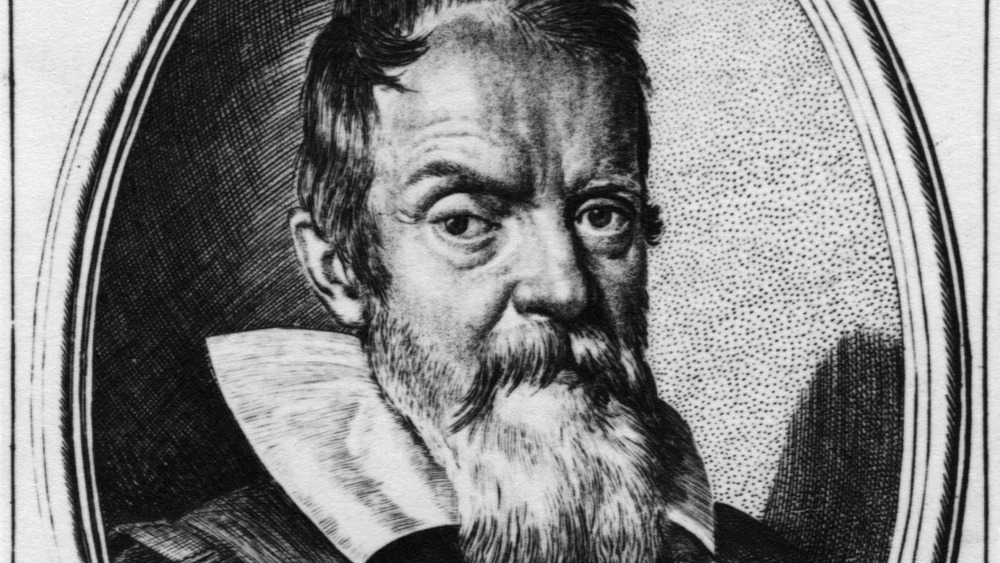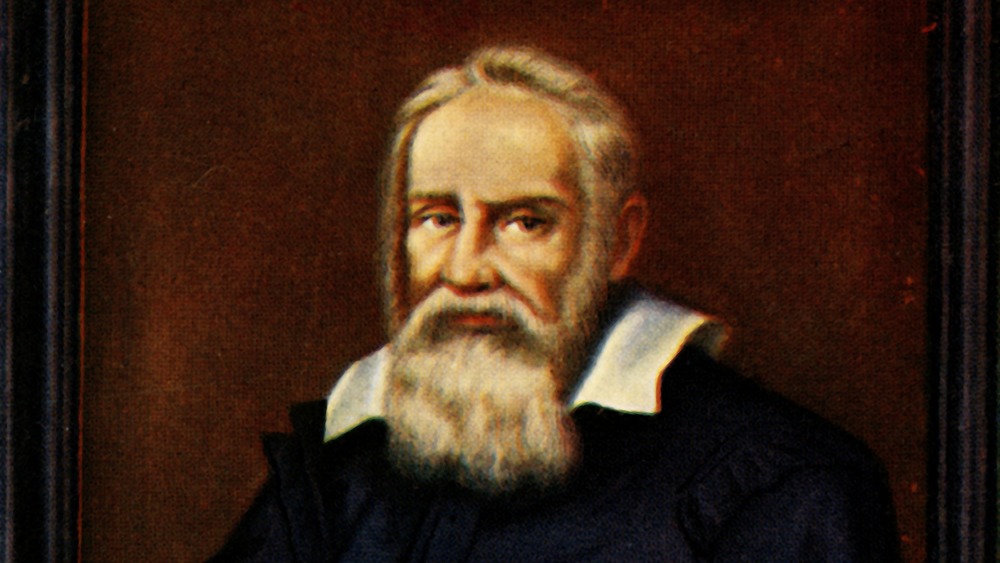The Amazing Real-Life Story Of Galileo Galilei
Galileo Galilei is one of the most legendary astronomers of our times, a man whose name is ubiquitous with physics, research and everything in between. As per Biography, the scientist was responsible for coming up with an incredibly useful device — the telescope. Additionally, he was a heavyweight in the world of physics, who supported ideas like the solar system revolving around the sun, something that wasn't quite accepted by those around him. This didn't deter the scientist who stuck to his beliefs.
Additionally, he got into trouble with the Church during his lifetime for his work, something that definitely had a massive impact on him and affected the way he lived his life. According to Smithsonian Magazine, the one thing that made Galileo rather unique is the fact that he was self-aware and knew exactly how to appeal to the masses. He once said something rather interesting that conveyed how he felt about his skills. He wrote in 1610, "I give infinite thanks to God who has been pleased to make me the first observer of marvelous things."
It's safe to say that the Italian astronomer didn't live an ordinary life. Here's taking a look at some of the most iconic events from his incredible life, including his childhood, his significant discoveries, his complicated relationship with the Catholic Church, and more.
Galileo was a part of a big family
Galileo Galilei, as per Biography, was born in Italy in February 1564. He had five siblings and was the oldest child, born to a musician, Vincenzo Galilei, and his wife, Giulia Ammannati. Ten years later, Galileo shifted base with his family to Florence where he first started studying at the Camaldolese monastery in Vallombrosa. As per Gutenberg, the budding researcher had an inspiring role model at home — his father, who was extremely talented and skilled at math, in addition to music.
In fact, Vincenzo even wrote many treatises in a bid to further explore his love for music and is believed to have shaped his son's outlook and approach towards research. As outlined in the book, Galileo: A Life, by James Reston Jr., Vincenzo once said something rather powerful that most definitely was aligned with his son's actions later in life. He said, "It appears to me that they who rely simply on the weight of authority to prove any assertion, without searching out the arguments to support it, act absurdly." He added that he wished to be free and think for himself without worrying about anything else.
Unfortunately, Vincenzo's stubbornness also affected his family and was the reason for arguments with his wife, who wanted him to focus more on Galileo and his siblings, especially in terms of making sure that their basic needs were met. All in all, Galileo most definitely had an interesting childhood replete with a myriad of experiences.
Galileo considered being a monk
Galileo Galilei's time at the Camaldolese monastery in Vallombrosa was symbolic. According to Galileo: A Life, he initially found it difficult to adjust to his new environment that was a far cry from his life at home. However, he slowly got used to life in Vallombrosa, especially because of the fact that the monks who taught him were learned men and had a lot to offer in terms of perspective. Naturally, Galileo was intrigued. As an impressionable 15 year old, he was fascinated by the Church and told his parents that he wanted to become a monk.
His father was not pleased at all. He shot down the idea quickly and got his son home after Galileo suffered through an unfortunate eye infection, ferreting his son away from the monks who were angry about the change in plans. Time made it easier for Galileo to accept that perhaps his father was right, and he was not meant to live his life as a monk, after all. He decided to live with his cousin in Pisa, who taught him how to be a wool merchant, while Galileo simultaneously focused on his education.
Galileo had to leave university
According to History, Vincenzo Galilei wanted his oldest son to take up medicine and encouraged him to go down that path. At the age of 16, Galileo Galilei started studying at the University of Pisa. However, he wasn't excited about medicine and ended up studying mathematics instead, despite being a medical student. Ultimately, he didn't finish studying and quit school in 1585, pursuing his education independently.
As per Biography, Galileo was not just interested in math but was curious about other disciplines, including physics. His reason for quitting university was simple — his family could not afford to pay for his education any longer. The enterprising Galileo did attempt to apply for scholarships in a bid to continue studying medicine and please his father, but his supervisors weren't keen on supporting him, primarily because they knew how outspoken he could be and alleged that he was a troublemaker. This led to Galileo quitting university much earlier than he intended, leaving his unfinished degree behind. Vincenzo saw this as a setback, but Galileo didn't loose heart and started working harder than ever.
Galileo was independent
Leaving the University of Pisa didn't stop Galileo Galilei from expanding his knowledge and even finding ways to support himself. As per Biography, the budding researcher found teaching gigs to keep himself afloat. Interestingly, according to Galileo: A Life, being a private tutor to enthusiastic students was something that Galileo loved doing. In fact, he didn't stop teaching and inspiring his students for 25 years.
He also started work on important projects, such as The Little Balance, that examined some of the noteworthy theories that Galileo was working on. Despite not being from a privileged background, he made the most of every opportunity that came knocking and worked hard to make his way to the top.
In fact, his work was significant for him to get a teaching position at the University of Pisa in 1589. During his time at the university, he continued to focus on important work, such as studying motion through falling objects and even working on his next book, Du Motu (On Motion). Galileo was both independent and ambitious. He didn't plan on letting any setback stop him from conducting his research.
He wasn't always liked
Of course, Galileo Galilei wasn't perfect. He managed to annoy several colleagues at the University of Pisa. As per Galileo: A Life, he didn't mince his words during his tenure there. For example, he didn't quite get along with his colleague, Professor Borro, and made no attempt to hide that fact. He also said whatever was on his mind without the fear of retribution. Plus, he wasn't a big fan of rules either and refused to dress up like the other professors at the university. A line in the book sums up his situation aptly. It reads, "His disheveled look was a metaphor for his contempt and an emblem for his radicalism."
What's more, he even spoke openly to his students about his views on controversial topics. He joked about how the toga that was worn by many professors would never be permitted in a brothel. Basically, his outlandish comments weren't appreciated by his peers who wanted him to leave his position at the university. While Galileo did spend three years at the university, his position was not renewed later, and it was obvious why. His colleagues didn't want him around anymore.
Galileo witnessed a tragedy
Galileo Galilei lost his father some time after he left the University of Pisa, which was a massive blow to the family. It was now up to Galileo to take care of his family and ensure that all their needs were met. According to the article, "Galileo's Significance in the History of Astronomy," by G.J. Whitrow, he was responsible for his siblings and his mom, which meant that he had to focus on getting a viable job opportunity to put food on the table. He eventually ended up joining the University of Padua and taught a plethora of subjects, including geometry, military engineering, astronomy, and more.
During his time at the university, he ended up befriending many influential men and making a name for himself at the same time. His private life went through several ups and downs as well. For instance, as far as his health was concerned, things weren't rosy, and he's believed to have suffered from rheumatic diseases. Of course, he wasn't bogged down by these setbacks.
He eventually became well-known as a revolutionary thinker
By the time Galileo Galilei joined the University of Padua, he had built a bit of reputation. He was known for his passion for science. Soon after joining the university, Galileo delivered a lecture in front of his peers and students (via Galileo: A Life). His speech was impressive and earned him instant recognition, as listeners spoke rather highly of him, praising him for his intelligence and quick-witted demeanor.
Plus, his peers were familiar with his father's work and held him in high regard for his work on music and poetry. Meanwhile, Galileo immersed himself into his work, exploring a wide range of topics. According to the New Scientist, what really helped Galileo was the fact that he was a precise researcher who put his heart and soul into his work. His measurements didn't leave room for error, and he was meticulous in the way he got things done, a trait that paid off handsomely.
Galileo had family issues
Galileo Galilei may have been a genius, but this didn't mean that he didn't face his share of personal troubles. According to History, he had a rocky personal life. He courted a woman named Marina Gamba, and the couple had three kids together. They never tied the knot, though. Additionally, two of their kids chose to join the church as adults. According to Galileo: A Life, the reason Galileo never married Gamba was simple.
She was a from a relatively lower socioeconomic background, and a union such as theirs wasn't respected in those times. This was evident in the way Galileo's mother treated Gamba. She didn't appreciate her presence in their lives and didn't hesitate to make her feelings known. Additionally, at one point, the scientist was dissatisfied with his work. When he asked for a raise from the University of Padua in 1603, he was refused. He was juggling a lot at that point — his family issues, his work pressure, and his personal ambitions. There was a lot on his mind, and he was looking for ways to make things more bearable.
He made himself a telescope
Galileo Galilei was a revolutionary thinker who modified the telescope and left no stone unturned to make its design better — something that majorly helped researchers in the following years as they examined the universe, studying faraway objects in the sky. According to Space.com, Galileo decided to apply his knowledge when he learned about "Dutch perspective glasses." He got to work and modified the design — his creation was good enough to be used to study objects a lot more closely by magnifying them 20 times more.
His work was widely appreciated, and he received a generous raise at the University of Padua. It's also important to understand that Galileo used his device well and studied objects in the sky himself, observing the surface of the moon, along with several planets and the Milky Way. Galileo was curious about what he could find. He was credited with several important discoveries — Saturn's rings and Jupiter's moons, for example.
Galileo made several discoveries
What was clear, even back then, was the fact that Galileo Galilei was no ordinary man. He had a gift, and he knew how to use it for the greater good. As pointed out by The New York Times, Galileo was easily one of the most significant minds of his generation. One of his major achievements was a book that he wrote in 1610, titled The Starry Message (also referred to as The Starry Messenger). He wrote about the things that fascinated him, diving into the world of stars and planets. While others were unsure about exploration, Galileo stepped away from the crowd to use the telescope to find answers to problems that bothered him, particularly the mysteries surrounding the universe.
His most significant claim? The earth is more similar to other planets and the moon than previously thought. He fearlessly spoke about his findings, despite knowing that they were very different from previously held beliefs. This led to two things — plenty of admiration from his peers and other contemporaries but also anger and resentment for questioning old beliefs. He was stepping away from the status quo with his claims that the earth actually revolves around the sun.
He got into trouble
One of the most painful experiences that Galileo Galilei had to live through was being shunned by the church for his beliefs. As per Galileo: A Life, the astronomer was placed under house arrest, something that didn't hurt his love for science as much as his zest for life itself. As per a UCLA piece, Galileo was told by the Catholic Church to give up his beliefs, saying that his claims were basically heresy and thus, unacceptable. Galileo refused to give up on his beliefs, something that didn't sit well with the church despite being told to do so.
Around 1632, the church persecuted the research and a year later, he was made to testify and placed under oath. However, he didn't budge and said that he knew he was right. Eventually, under pressure, he did add that he had perhaps been forceful with his arguments. At the same time, he said that he chose to act the way he did because he was good at debating and presenting his argument. He was charged with "a strong suspicion of heresy" and sentenced to house arrest for life. Additionally, authorities chose to ban his 1632 book, Dialogue on the Two World Systems.
Later, the church tried to pay for its past actions. According to the The New York Times, the church released a statement 350 years after the astronomer's arrest and announced, "We today know that Galileo was right in adopting the Copernican astronomical theory."
Galileo started losing hope
For Galileo Galilei, being forced to adhere to house arrest was frustrating. According to the book, Galileo: A Life, one of his daughters, Maria Celeste, fell seriously ill. This was difficult for Galileo to witness as he tended to his daughter. She passed away when she was 33 years old, after a bout of dysentery. In just four weeks after Maria Celeste died, Galileo felt like he was hitting rock bottom. He was tired and had already spent 15 months in exile. He started facing health issues — he wasn't hungry, his blood pressure was out of control, and he was battling a hernia. He expressed his pain openly when he wrote, "I feel myself perpetually called by my beloved daughter. I loathe myself."
According to Space.com, even when Galileo had hit a new low, he did continue to focus on work and kept himself occupied until his death. He stayed active despite being nearly blind by the time he passed away. In his final three years, he accepted help from his assistants. who read stuff out loud to him and managed his everyday affairs. By that time, his condition had deteriorated, and he battled constant bouts of fever and backaches. Admirably, he never completely stopped thinking and questioning. For example, towards the end of his life, he asked himself whether clocks could be redesigned to be more accurate and worked on his ideas with his son.
